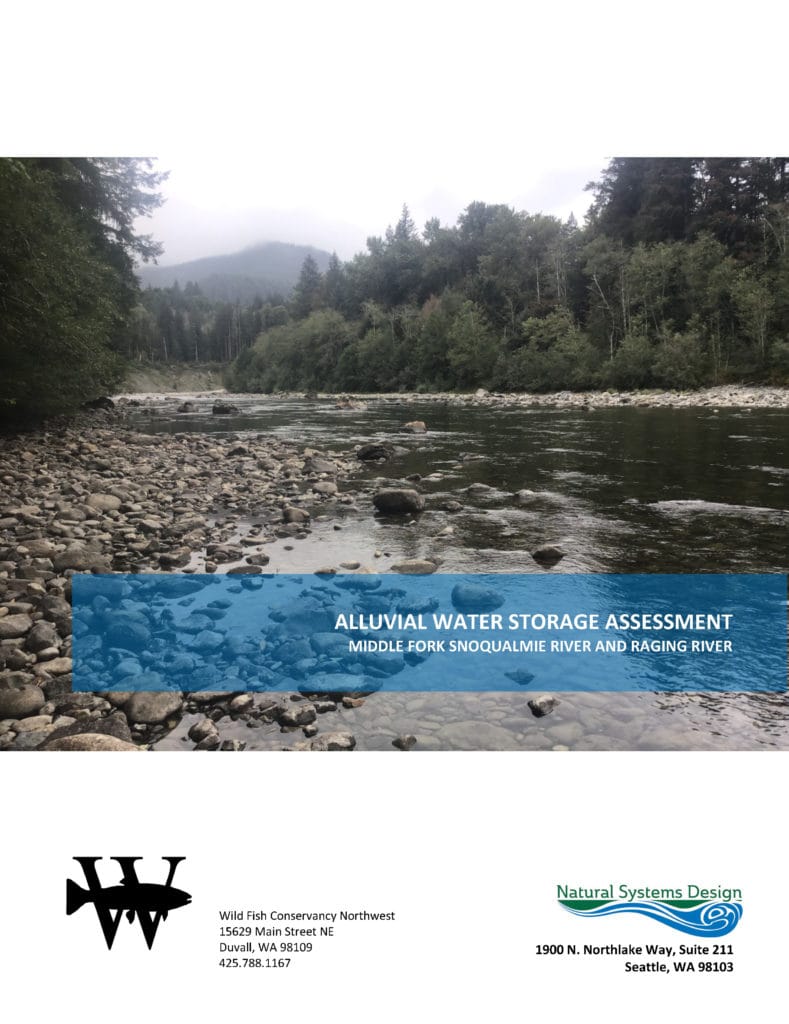
Description |
|---|
The final report for Phase 1 of the Snoqualmie and Upper Skykomish Alluvial Water Storage Assessment. Wild Fish Conservancy requested that Natural Systems Design (NSD) quantitatively and qualitatively assess the potential for restoring alluvial water storage functions in the Middle Fork (MF) Snoqualmie and Raging River watersheds, located in southeast King County, Washington. Both watersheds provide important ecological functions including providing aquatic habitat and maintaining water quality for ecological, recreational, and out-of-stream uses. The Raging River also provides critically important spawning habitat for Chinook (Oncorhynchus tshawytscha) and steelhead (Oncorhynchus mykiss irideus) (WDFW, 2018). However, natural functions that form and maintain aquatic habitat and provide ecosystem services have been impaired by land use impacts and will be further impaired by climate change impacts. Climate change is projected to reduce snow storage, which will affect the timing and magnitude of spring flows in the mixed rain-snow dominated MF Snoqualmie River. In addition, changing precipitation patterns and rising temperatures are anticipated to increase peak flow events, reduce summer low flows, and warm stream temperatures in both watersheds (Lee et al., 2020; Mauger & Won, 2020; Yan et al., 2021). Restoration of natural functions to store and slowly release colder groundwater from the shallow alluvial aquifer, which have been diminished due to channel incision and simplification, has the potential to locally diminish impacts from climate change and land use. This analysis provides a spatially explicit estimate of the potential for restoring alluvial water storage functions and a screening-level identification of reaches with highest potential for restoring these natural functions. |
File Attachment |
|---|
Download |